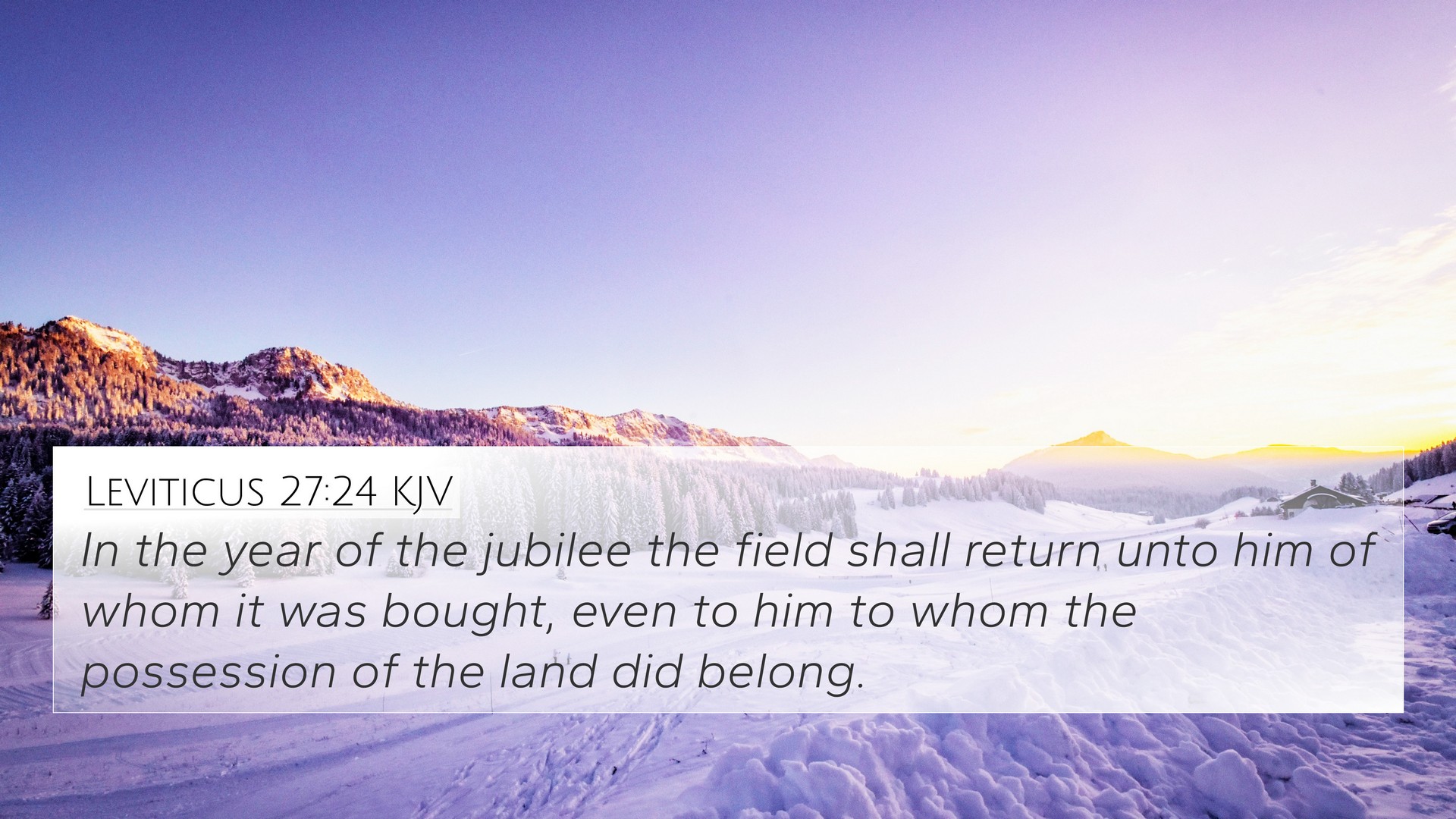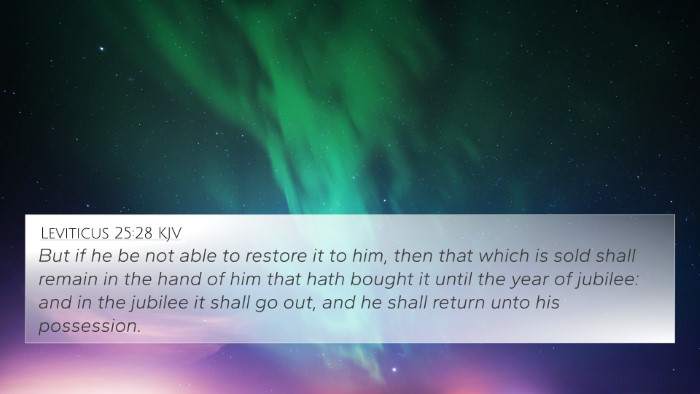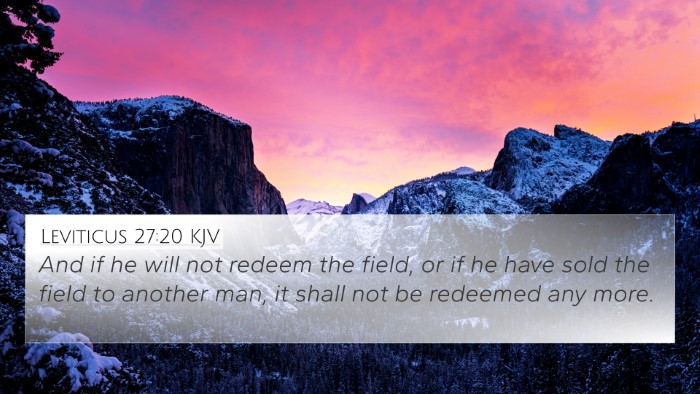Understanding Leviticus 27:24
Leviticus 27:24 states, "In the year of Jubilee, the field shall return to him of whom it was bought, even to him to whom the possession of the land did belong." This verse encapsulates the principles of redemption and restoration central to the Jubilee year, highlighting God's design for His people and their property.
Verse Interpretation
The verse indicates that during the Jubilee year, which occurs every fiftieth year, all forfeited lands and properties are returned to their original owners. This was an important practice in Israelite society, ensuring that every family had a chance to regain their ancestral inheritance.
Commentary Insights
- Matthew Henry: Henry emphasizes the mercy and justice of God in restoring land to its rightful owners, reinforcing the concept of equality and societal balance. He highlights how the law served to prevent permanent poverty and social stratification within the community.
- Albert Barnes: Barnes points out the significance of the Jubilee as a time of freedom, not just for the land but also for individuals, reflecting God's intention for His people to be free from the burdens of perpetual debt.
- Adam Clarke: Clarke explains that the return of land during Jubilee signifies the redemptive nature of God’s covenant. He notes that this practice mirrors the spiritual restoration believers receive through Christ, linking the Old Testament law to New Testament grace.
Connections to Other Biblical Texts
Many other scriptures provide context or thematic parallels relevant to Leviticus 27:24. Below are key Bible cross-references:
- Isaiah 61:1-2: This passage speaks of liberation and restoration, echoing the spirit of the Jubilee.
- Luke 4:18-19: Jesus quotes Isaiah, declaring that He fulfills the prophecies of restoration and freedom.
- Matthew 18:15-17: Jesus discusses reconciliation, reflecting the themes of redemption and restoration found in the Jubilee laws.
- Romans 8:21: This verse portrays the ultimate liberation of creation, paralleling the themes of restoration in Leviticus.
- Galatians 4:4-5: Discusses Christ’s coming as a means to redeem those under the law, connecting to the idea of redemption found in the Jubilee year.
- 1 Corinthians 7:23: Paul emphasizes that believers were bought with a price, relating to the idea that property rights and status can be restored.
- Hebrews 9:12: Indicates that Christ entered the holy place once to secure eternal redemption, reflecting the ultimate fulfillment of the Jubilee's intent.
Thematic Bible Connections
The thematic elements of Leviticus 27:24 can be summarized with the following points:
- Redemption: The concept of returning to land parallels the spiritual redemption found in Christ.
- Restoration: The return of property is symbolic of God's desire to restore His people.
- Justice: The laws regarding land ownership aim to prevent exploitation and ensure equity.
- Community: Emphasizes the importance of maintaining strong familial and community ties.
Tools for Bible Cross-Referencing
To explore these connections further, various tools can aid in Bible study, particularly in understanding cross-references:
- Bible Concordance: A valuable tool for finding related verses and themes.
- Bible Cross-Reference Guide: Contains extensive listings of associated scriptures.
- Comprehensive Bible Cross-Reference Materials: Resources that provide thorough analysis of theological themes across the scriptures.
Conclusion
Leviticus 27:24 serves as a vital reminder of God’s justice and mercy in matters of property and societal order. By exploring this verse with the insights of public domain commentators and cross-referencing with related scriptures, we gain a deeper understanding of God's redemptive plan. The connections embodied within the scriptures exemplify a complex inter-Biblical dialogue that highlights the continuity and relevance of God’s promises throughout the ages.




